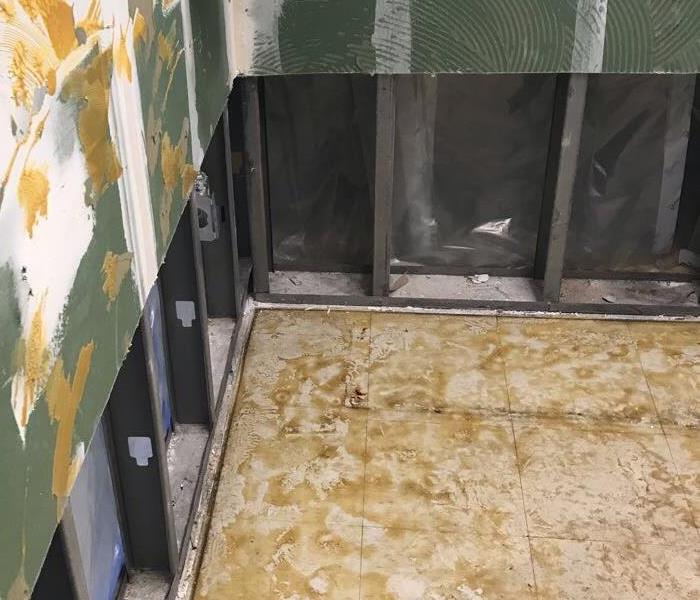What is a Flood Cut?
6/1/2020 (Permalink)
Restoration Professionals Often Use The Term "Flood Cut"
A flood cut is a technique that restores use after flooding affects your home. This technique requires a certified professional to cut out sections of drywall to inspect the surfaces behind it. A typical flood cut is cut about two feet above where the water had affected the wall. The main time that SERVPRO restores will have to perform a flood cut is after a flood occurs, or in areas that have been affected for a while.
Three main circumstances where SERVPRO professionals will have to make a Flood cut
- Black Water Floods - (Category 3)
Outdoor flooding can invade your home from overflowing streams or rivers. Category 3 water may contain sewage, chemicals, or dead animal carcasses. Because of the possible toxins in the water, it can be considered contaminated also known as black water or - (Category 3). The reason a flood cut is usually necessary when this type of flooding occurs is that your home’s drywall and insulation behind it are most likely affected by the dirty water making a cut necessary.
- Wet Insulation
When you can see clear drywall lines from water damage then it is most likely that the insulation behind is also affected. Once the insulation is wet, it takes a while to dry. Remember that insulation is to keep any outdoor temperature from entering the house. Insulation acts almost like a sponge, it absorbs liquid as soon as it touches it. Due to its quick absorption, it is best to remove it when it gets wet.
- Mold Growth
Mold can begin to grow behind interior walls and spread quickly if it is not addressed. Flood technicians may perform a flood cut to check for mold and treat the area if any is found. Mold does not need sunlight to grow, it can spread from interior walls to other areas and cause an unpleasant odor in your home. A flood cut can prevent this and keep mold at bay.
Your safety is always our number one priority here at SERVPRO of North Fulton. We are available 24/7 for any questions or concerns. (770) 992-2777





 24/7 Emergency Service
24/7 Emergency Service
